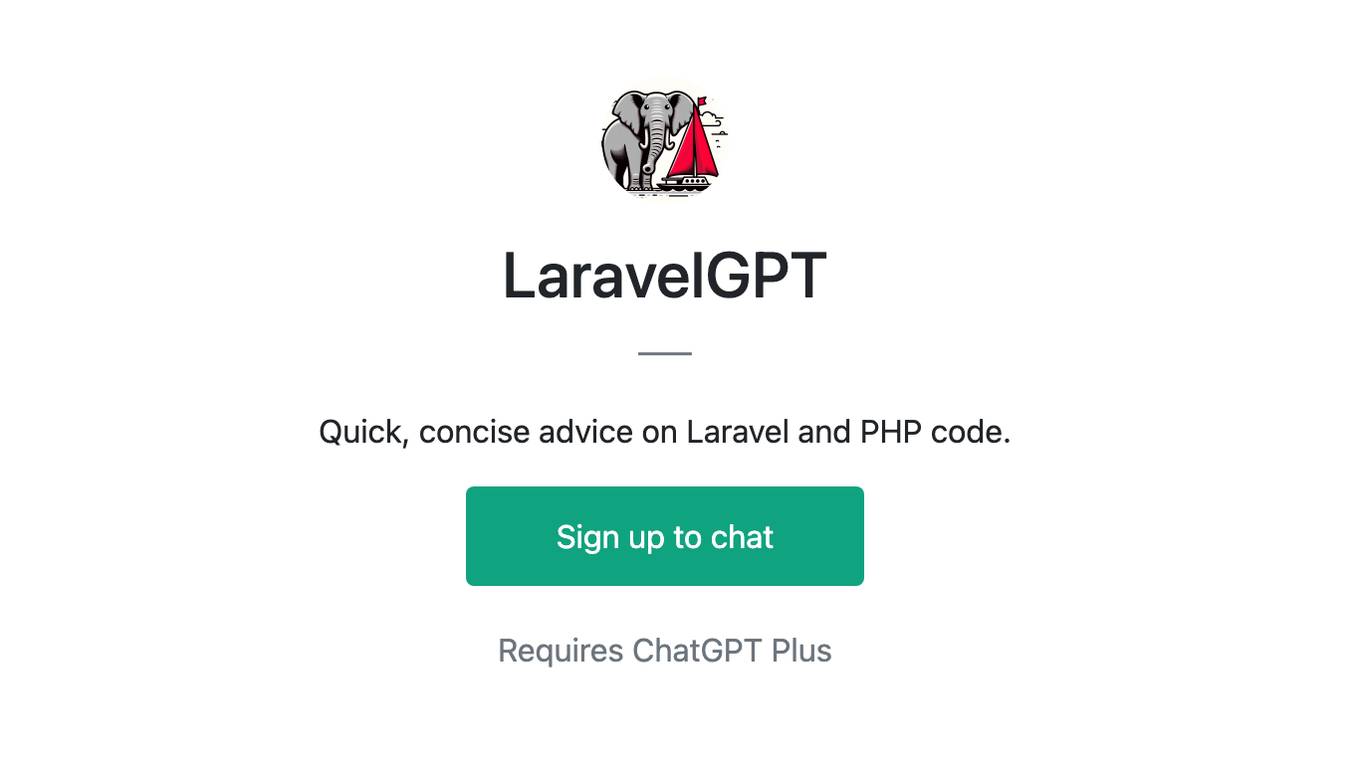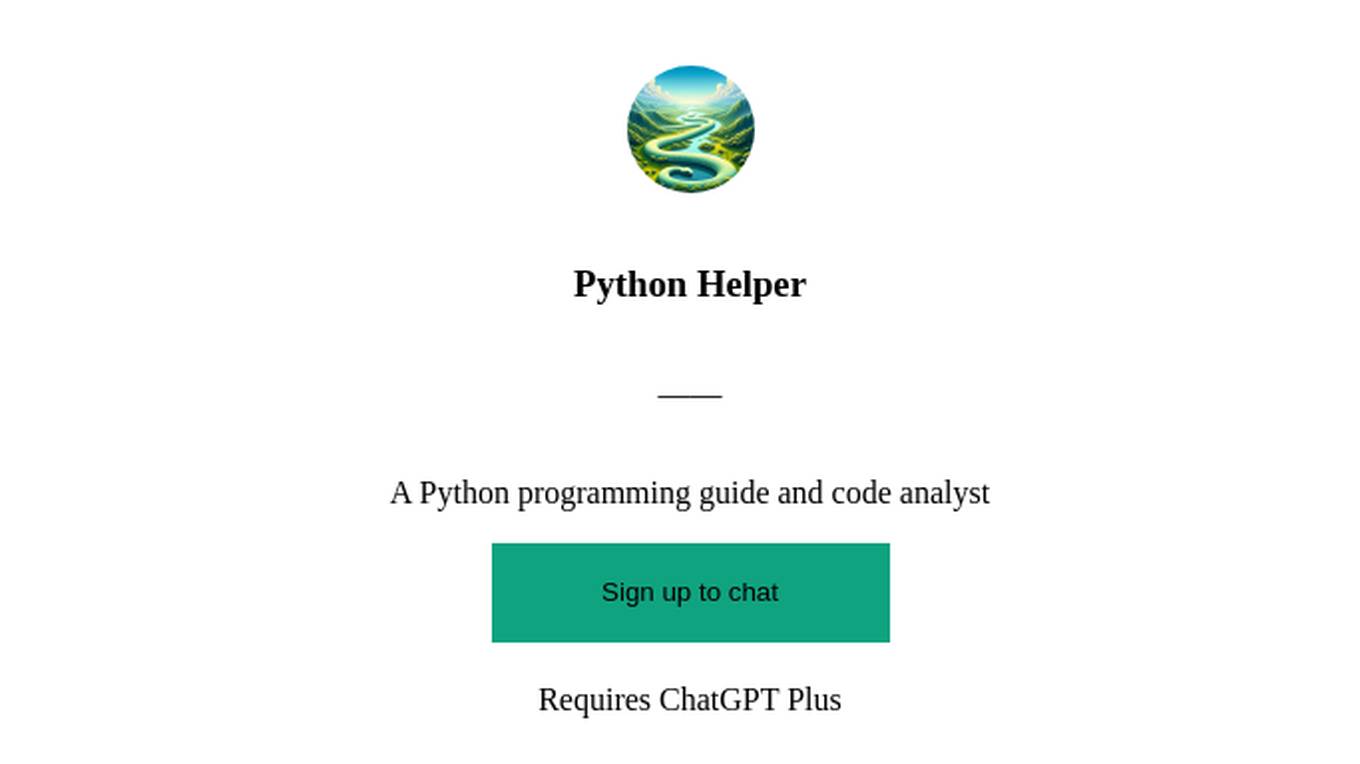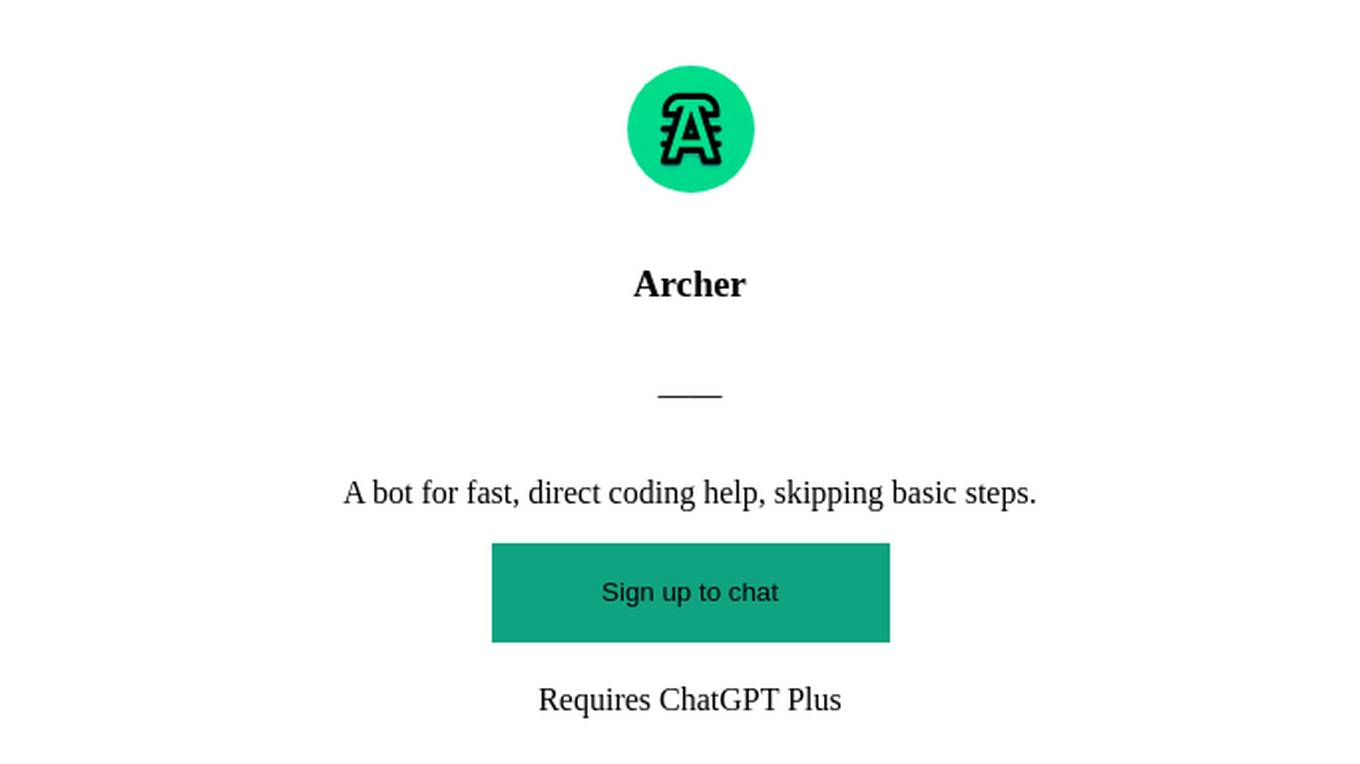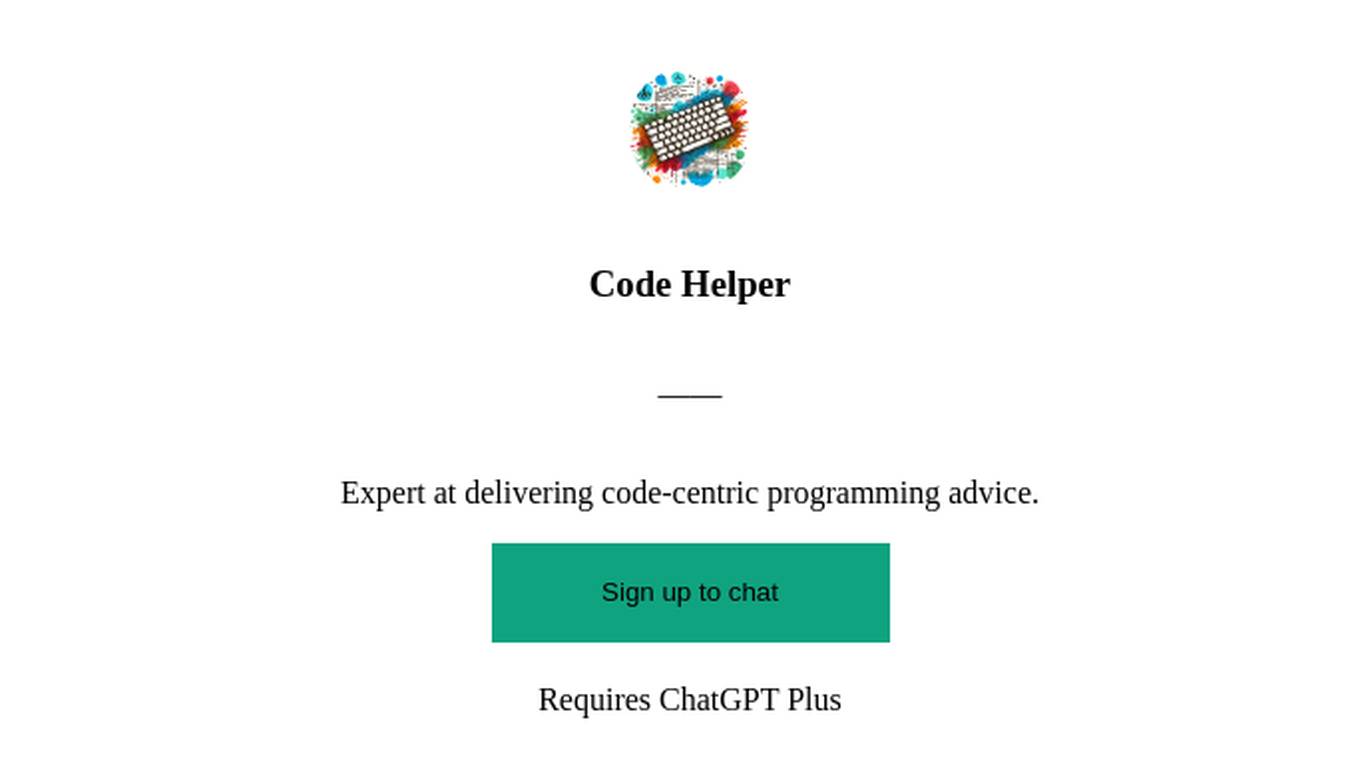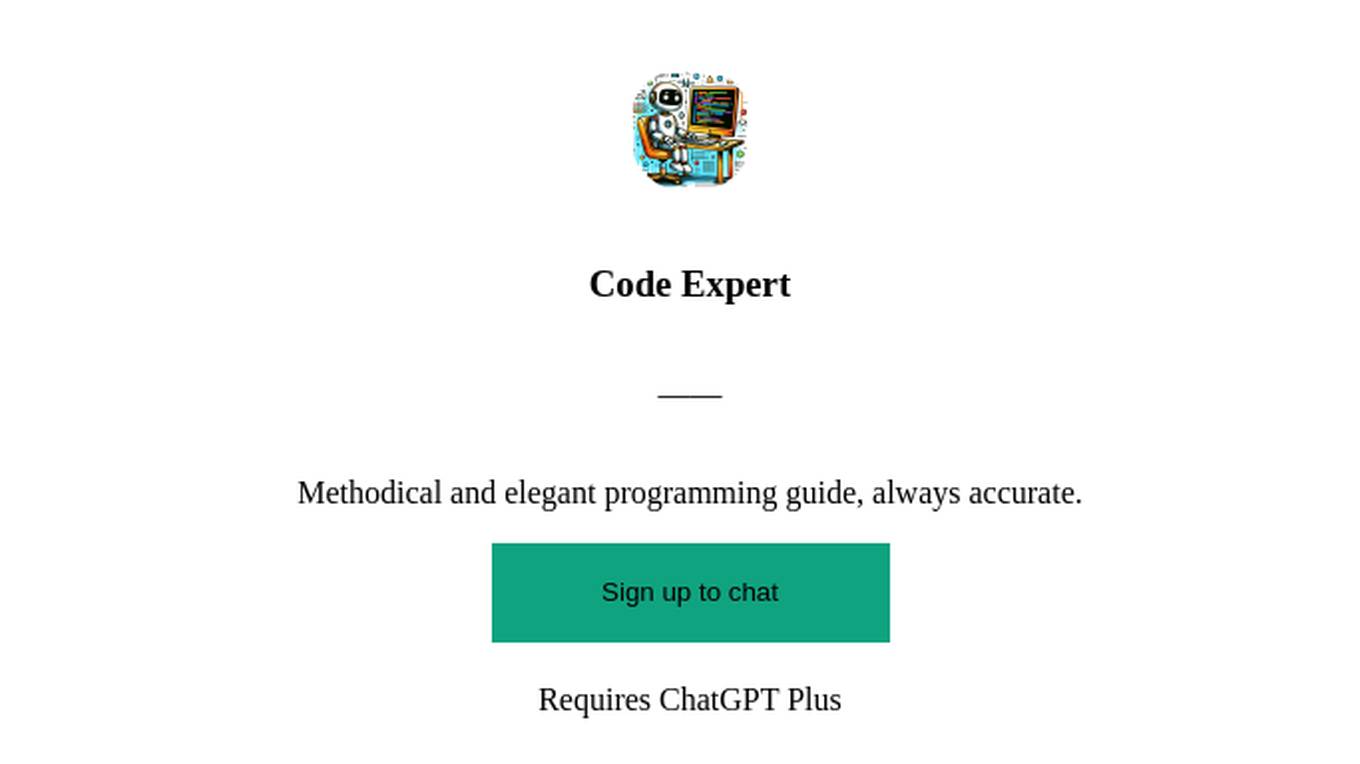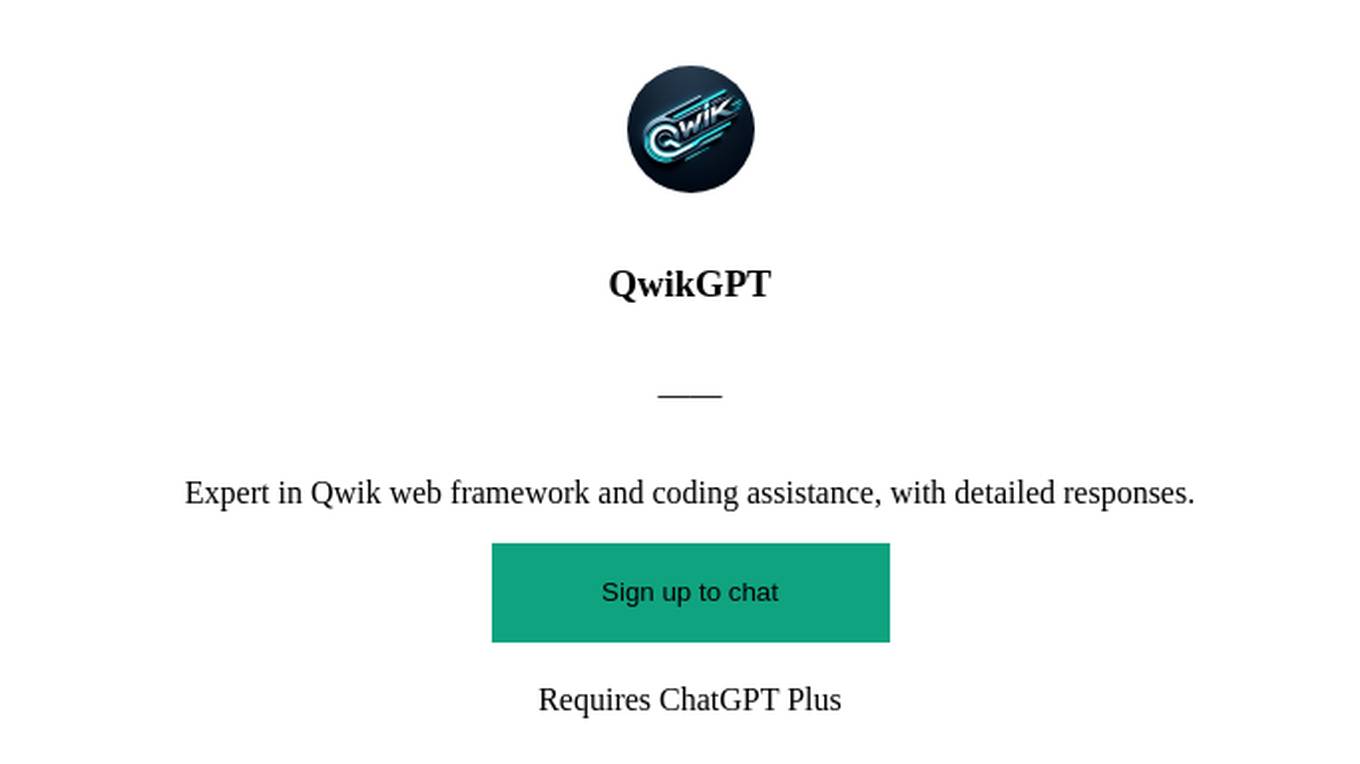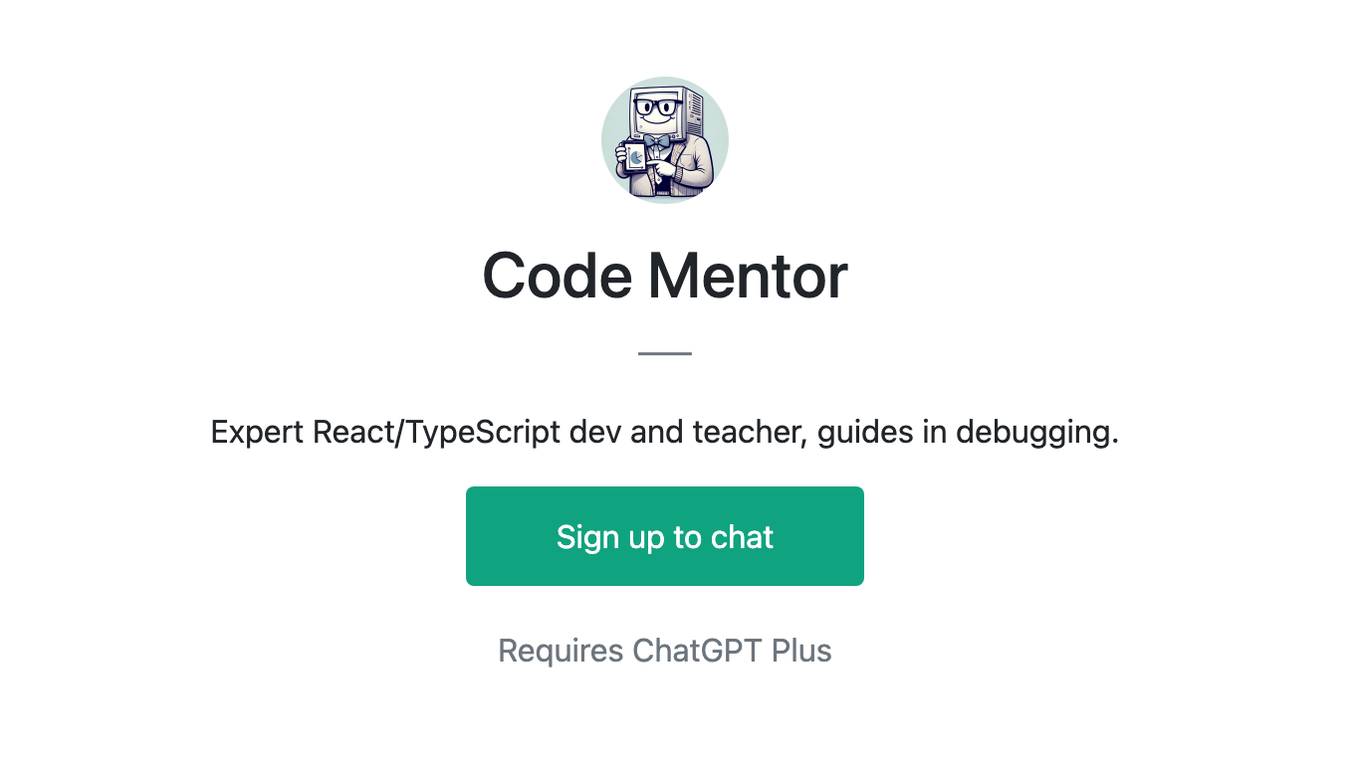Best AI tools for< Debug Performance >
20 - AI tool Sites

Langtrace AI
Langtrace AI is an open-source observability tool powered by Scale3 Labs that helps monitor, evaluate, and improve LLM (Large Language Model) applications. It collects and analyzes traces and metrics to provide insights into the ML pipeline, ensuring security through SOC 2 Type II certification. Langtrace supports popular LLMs, frameworks, and vector databases, offering end-to-end observability and the ability to build and deploy AI applications with confidence.
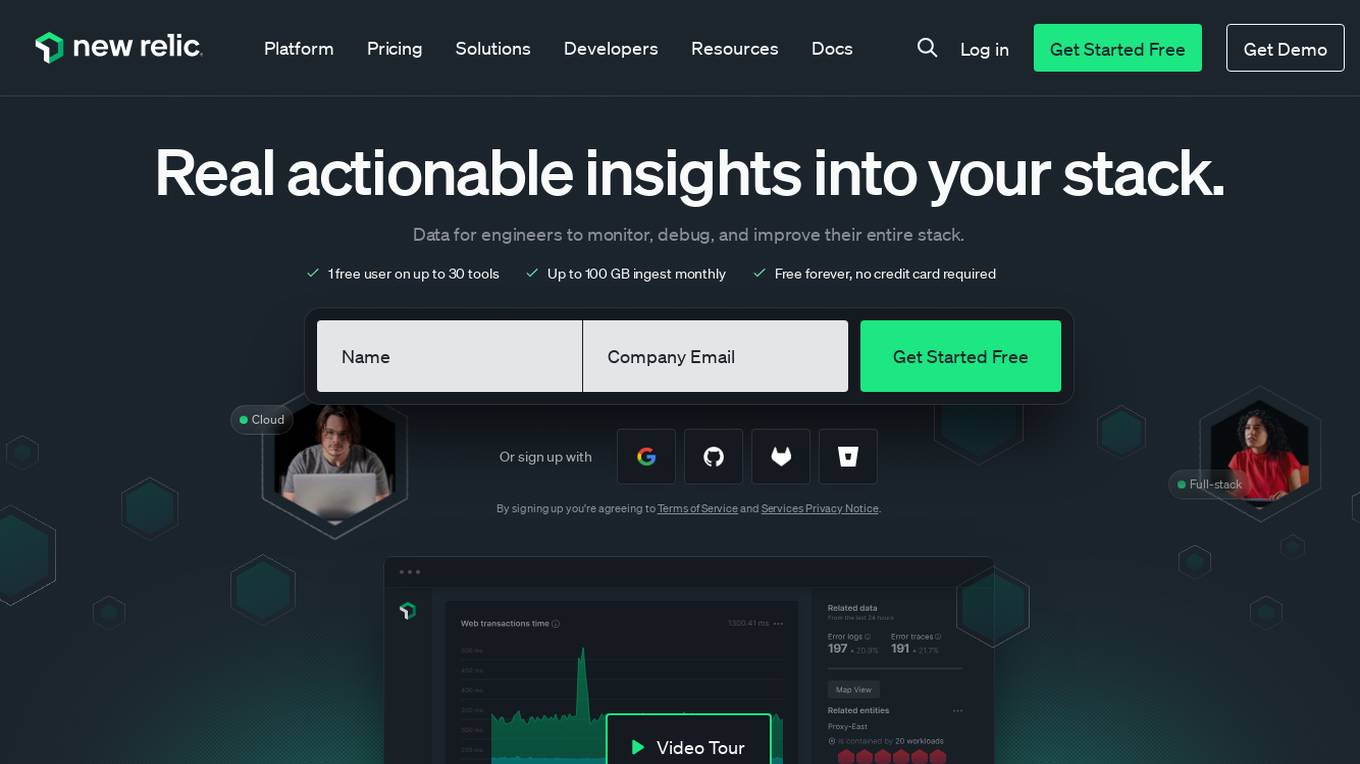
New Relic
New Relic is an AI monitoring platform that offers an all-in-one observability solution for monitoring, debugging, and improving the entire technology stack. With over 30 capabilities and 750+ integrations, New Relic provides the power of AI to help users gain insights and optimize performance across various aspects of their infrastructure, applications, and digital experiences.
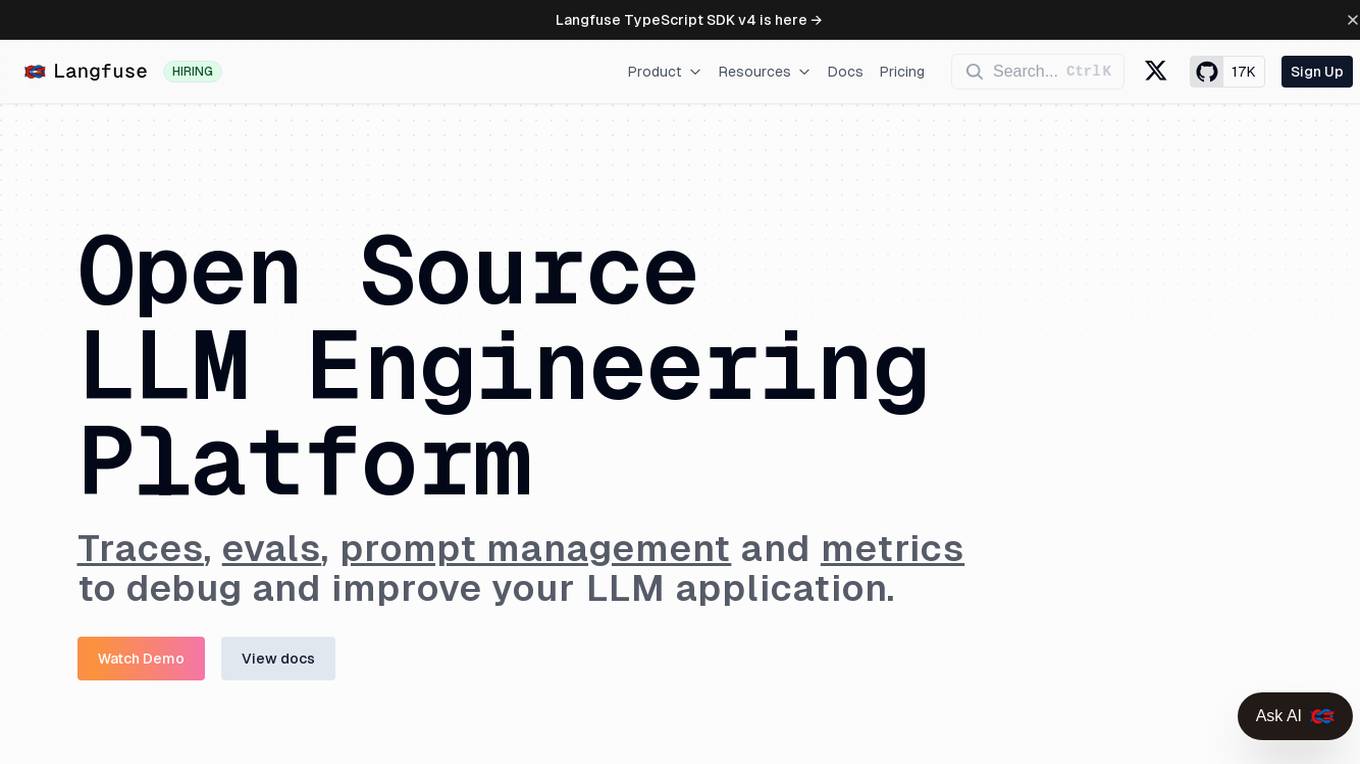
Langfuse
Langfuse is an AI tool that offers the Langfuse TypeScript SDK v4 for building and debugging LLM (Large Language Models) applications. It provides features such as tracing, prompt management, evaluation, and metrics to enhance the performance of LLM applications. Langfuse is backed by a team of experts and offers integrations with various platforms and SDKs. The tool aims to simplify the development process of complex LLM applications and improve overall efficiency.
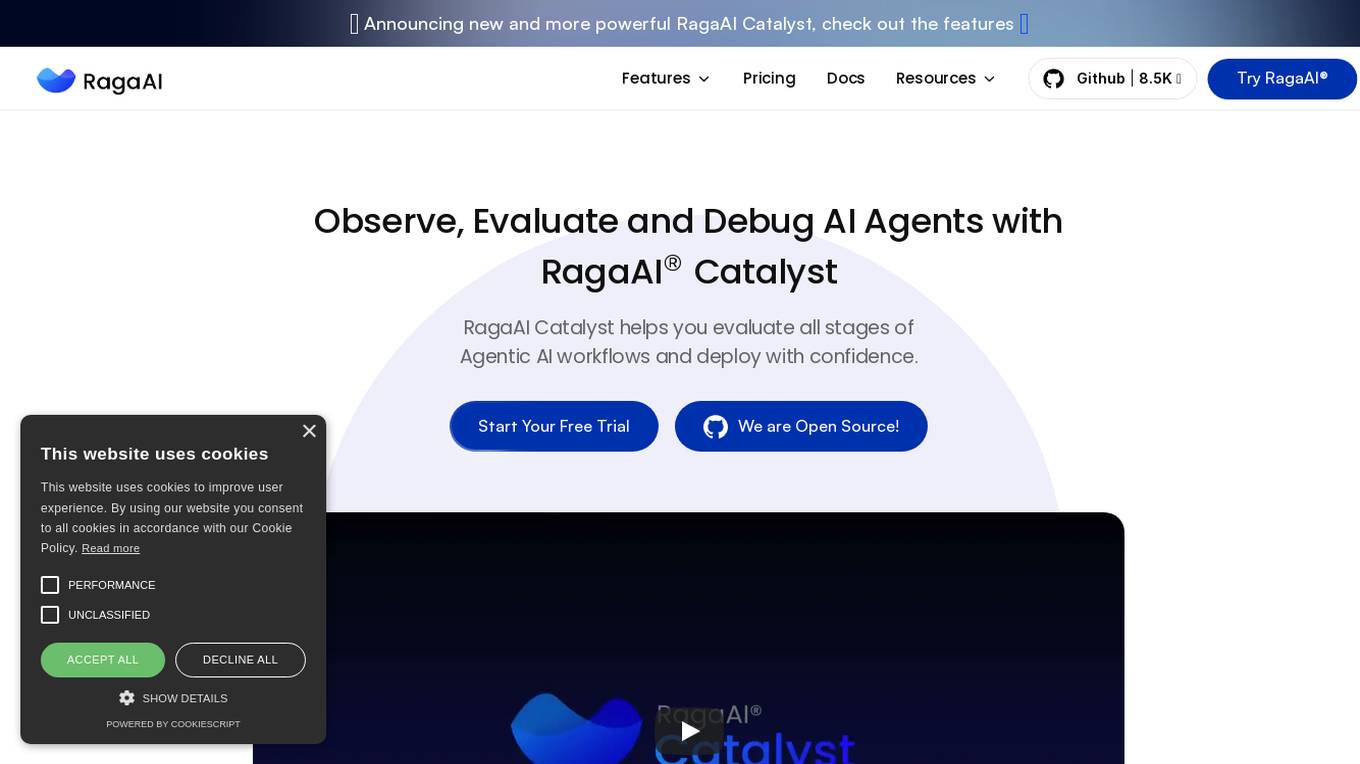
RagaAI Catalyst
RagaAI Catalyst is a sophisticated AI observability, monitoring, and evaluation platform designed to help users observe, evaluate, and debug AI agents at all stages of Agentic AI workflows. It offers features like visualizing trace data, instrumenting and monitoring tools and agents, enhancing AI performance, agentic testing, comprehensive trace logging, evaluation for each step of the agent, enterprise-grade experiment management, secure and reliable LLM outputs, finetuning with human feedback integration, defining custom evaluation logic, generating synthetic data, and optimizing LLM testing with speed and precision. The platform is trusted by AI leaders globally and provides a comprehensive suite of tools for AI developers and enterprises.
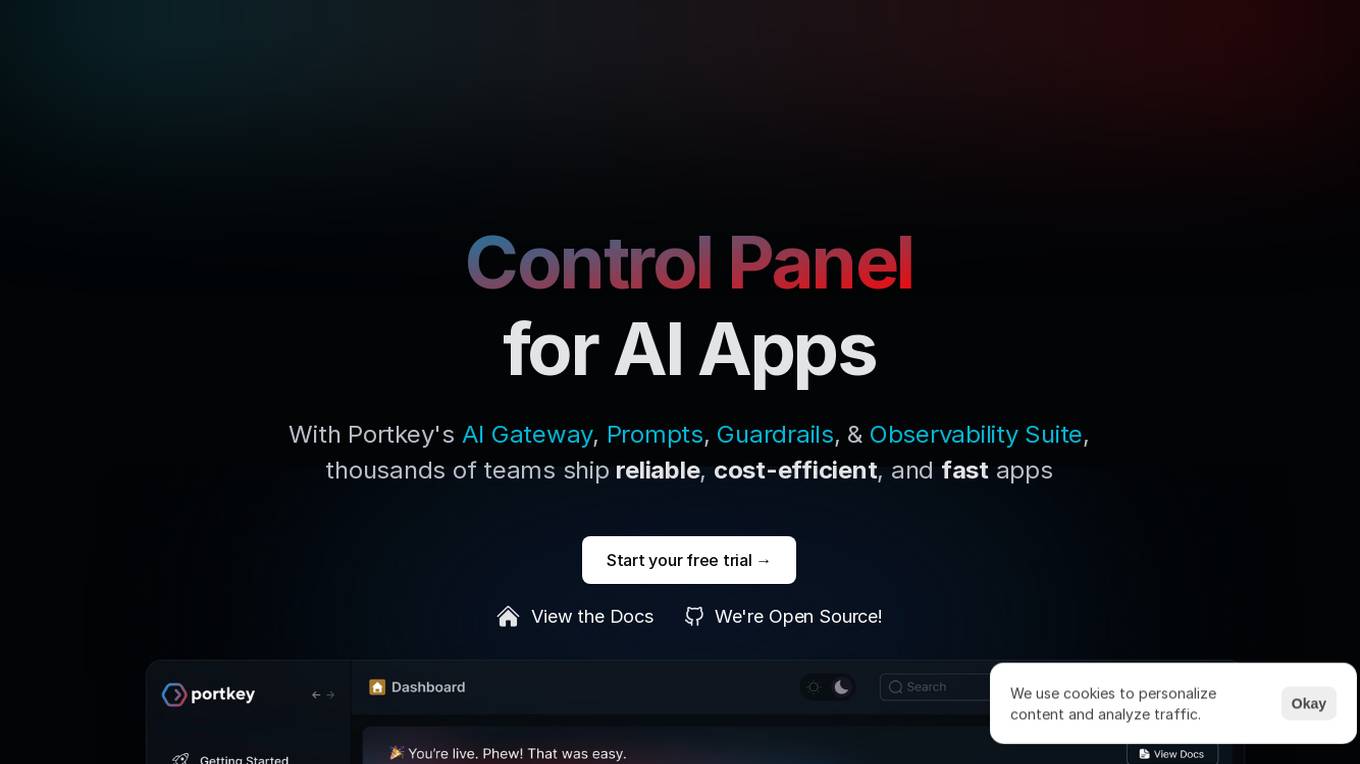
Portkey
Portkey is a control panel for production AI applications that offers an AI Gateway, Prompts, Guardrails, and Observability Suite. It enables teams to ship reliable, cost-efficient, and fast apps by providing tools for prompt engineering, enforcing reliable LLM behavior, integrating with major agent frameworks, and building AI agents with access to real-world tools. Portkey also offers seamless AI integrations for smarter decisions, with features like managed hosting, smart caching, and edge compute layers to optimize app performance.

Langtail
Langtail is a platform that helps developers build, test, and deploy AI-powered applications. It provides a suite of tools to help developers debug prompts, run tests, and monitor the performance of their AI models. Langtail also offers a community forum where developers can share tips and tricks, and get help from other users.
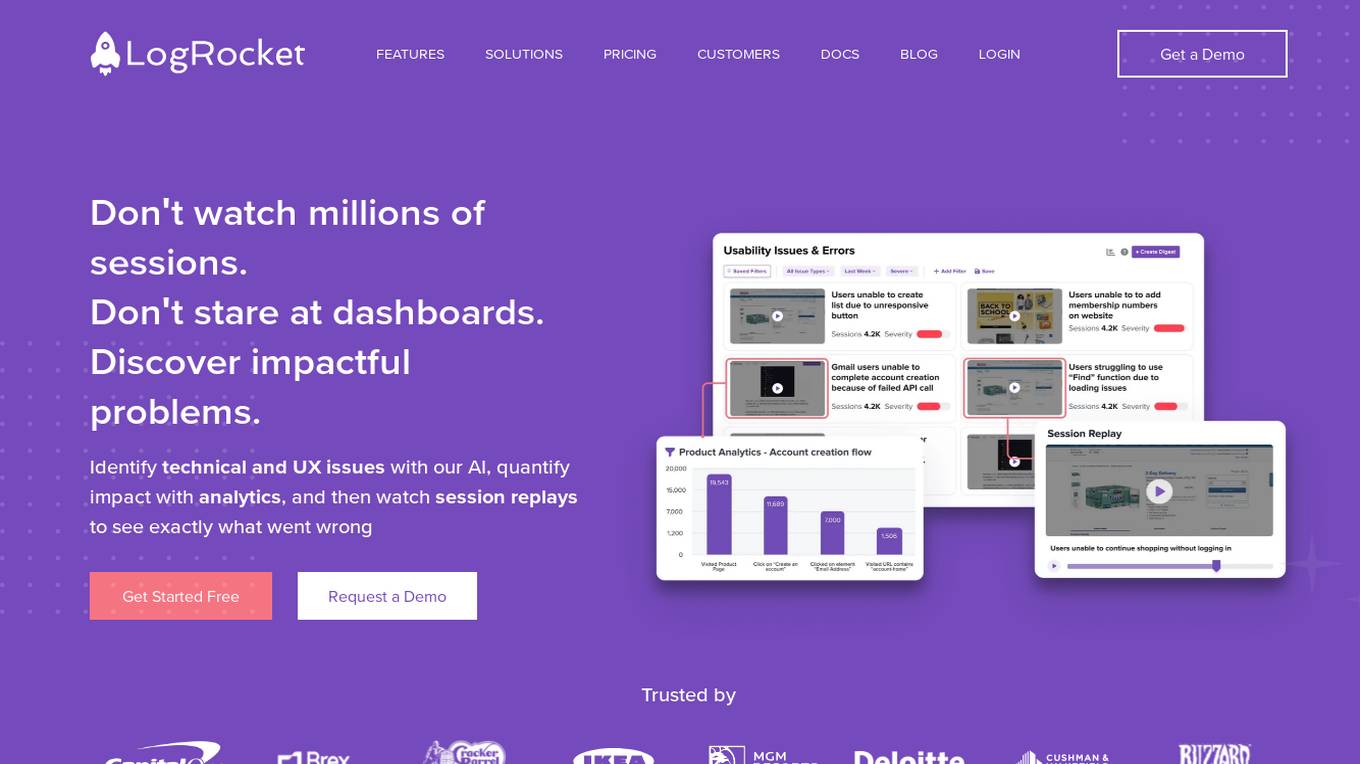
LogRocket
LogRocket is a session replay, product analytics, and issue detection platform that helps software teams deliver the best web and mobile experiences. With LogRocket, you can see exactly what users experienced on your app, as well as DOM playback, console and network logs, errors, and performance data. You can also surface the most impactful user issues with JavaScript errors, network errors, stack traces, automatic triaging, and alerting. LogRocket also provides product analytics to help you understand how users are interacting with your app, and UX analytics to help you visualize how users experience your app at both the individual and aggregate level.
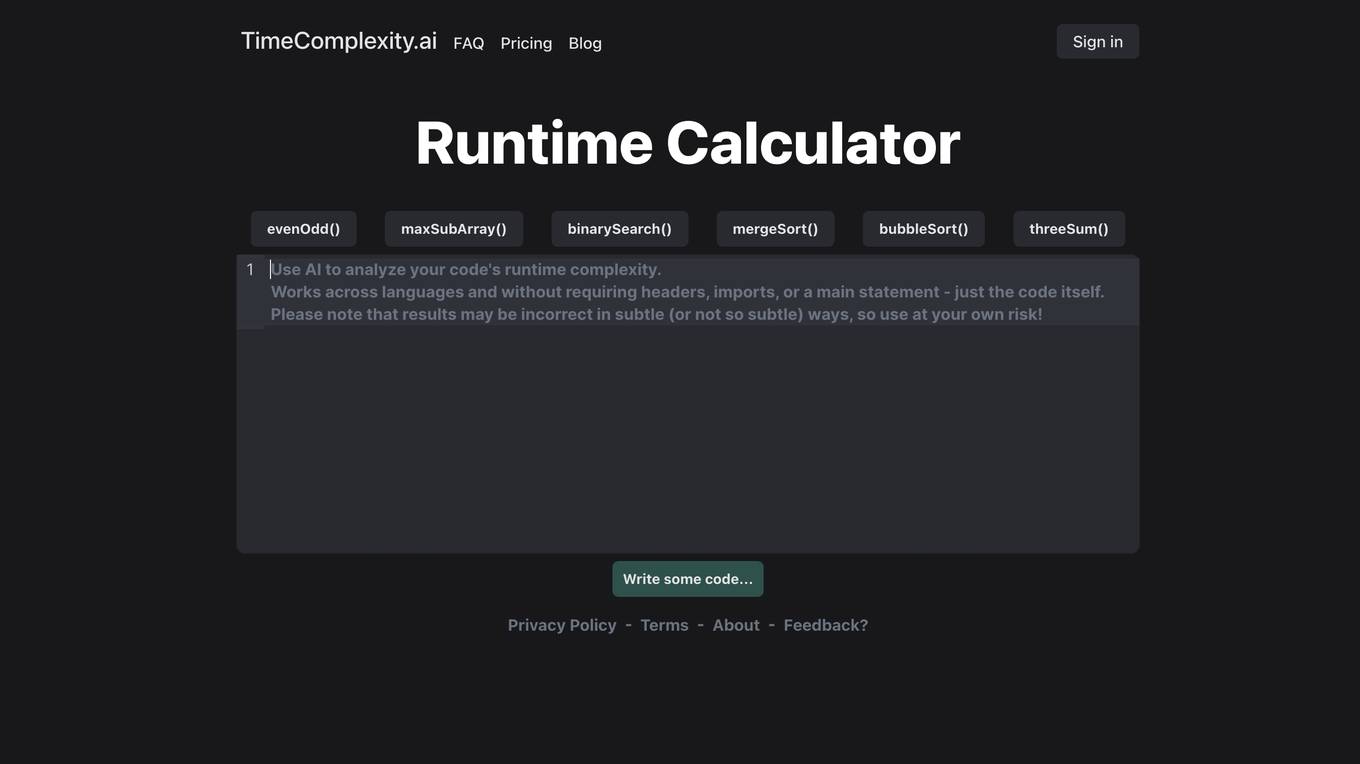
TimeComplexity.ai
TimeComplexity.ai is an AI tool that helps users analyze the runtime complexity of their code. It can be used across different programming languages without the need for headers, imports, or a main statement. Users can input their code and get insights into its time complexity. However, it is important to note that the results may not always be accurate, so caution is advised when using the tool.
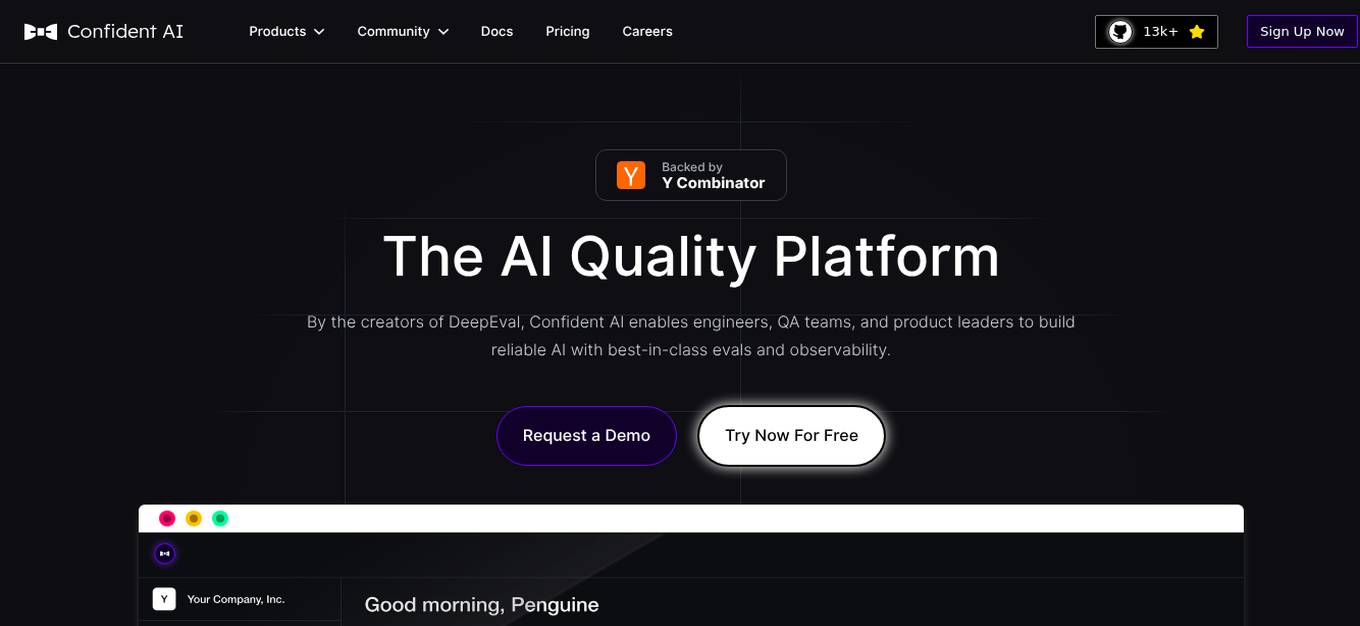
Confident AI
Confident AI is an AI evaluation and observability platform designed to help engineers, QA teams, and product leaders build reliable AI systems. It offers best-in-class evaluation metrics powered by DeepEval, real-time production alerts, and tools for tracing and monitoring AI performance. The platform aims to streamline dataset curation, metric alignment, and LLM testing automation, ultimately saving time, reducing costs, and ensuring continuous improvement of AI models.
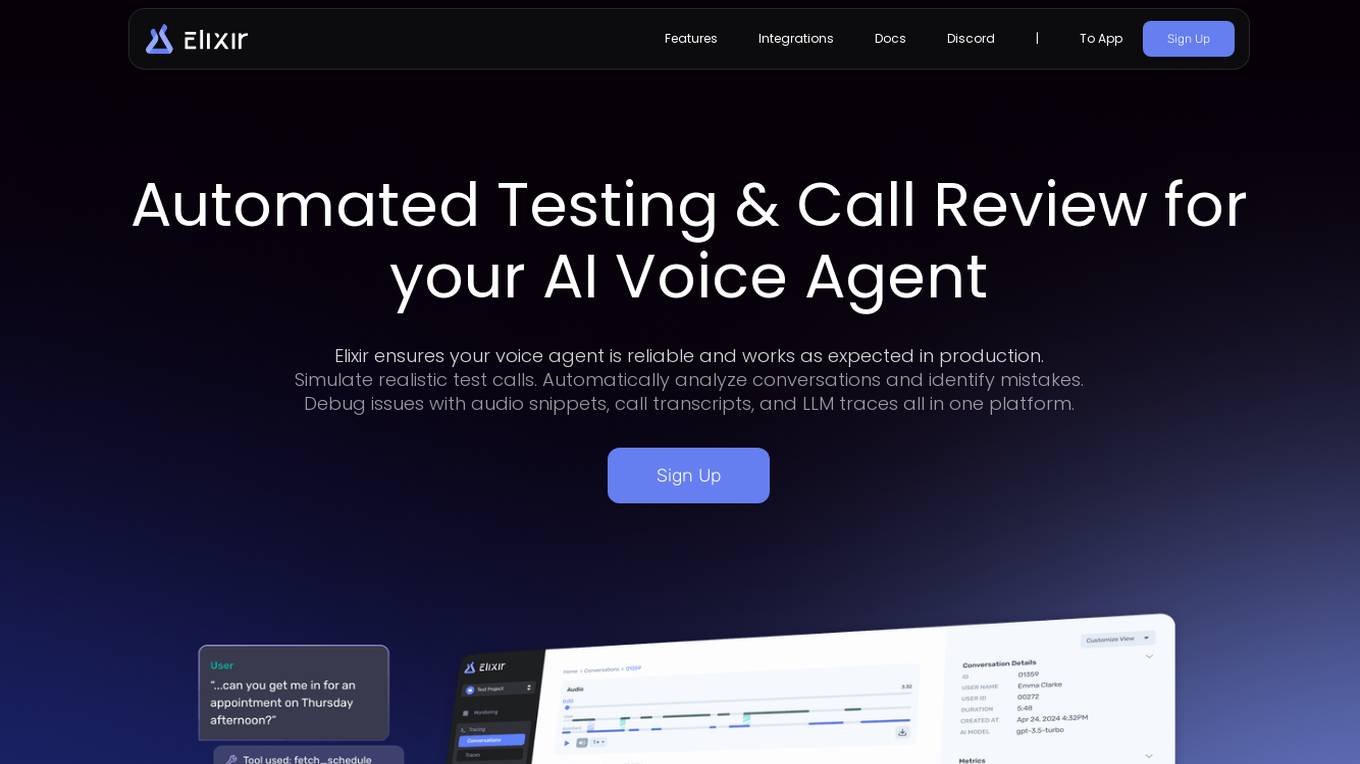
Elixir
Elixir is an AI tool designed for observability and testing of AI voice agents. It offers features such as automated testing, call review, monitoring, analytics, tracing, scoring, and reviewing. Elixir helps in simulating realistic test calls, analyzing conversations, identifying mistakes, and debugging issues with audio snippets and call transcripts. It provides detailed traces for complex abstractions, streamlines manual review processes, and allows for simulating thousands of calls for full test coverage. The tool is suitable for monitoring agent performance, detecting anomalies in real-time, and improving conversational systems through human-in-the-loop feedback.
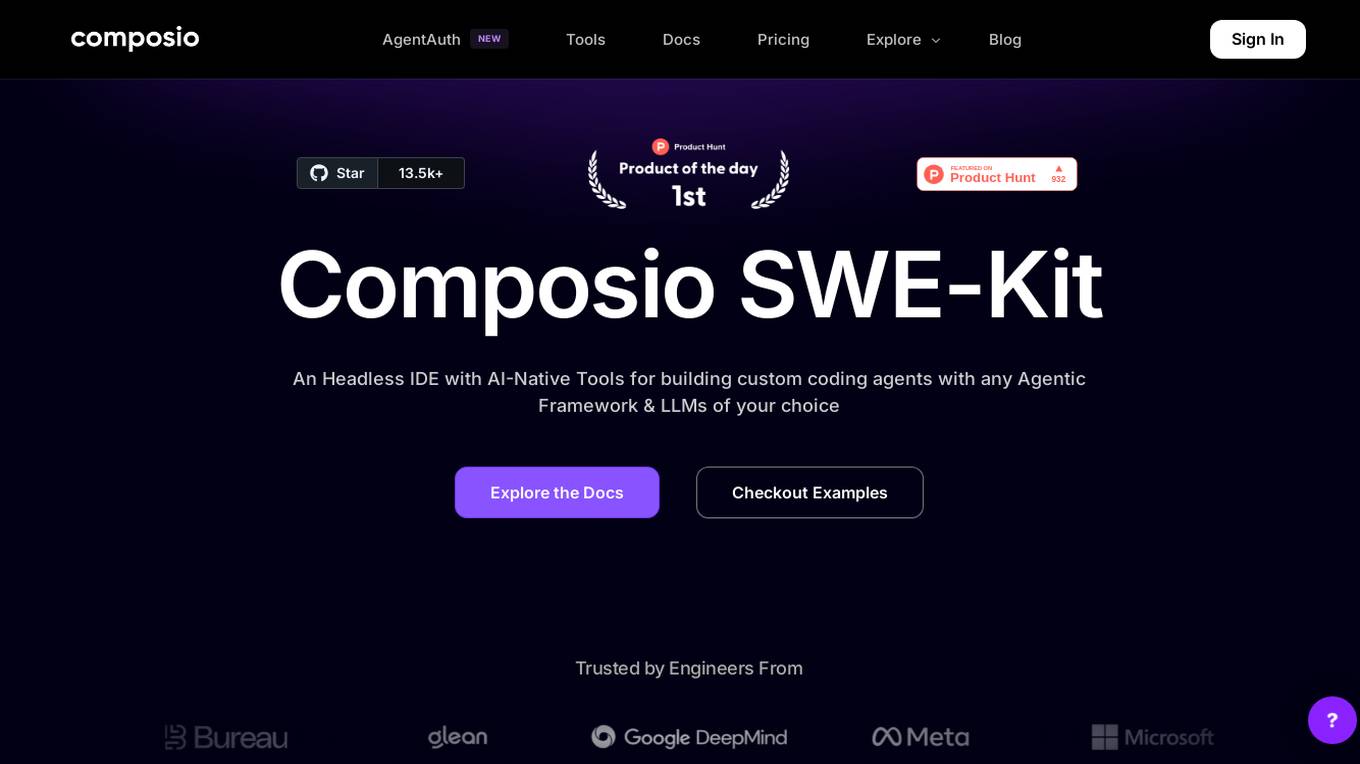
SWE Kit
SWE Kit is an open-source headless IDE designed for building custom coding agents with state-of-the-art performance. It offers AI-native tools to streamline the coding review process, enhance code quality, and optimize development efficiency. The application supports various agentic frameworks and LLM inference providers, providing a flexible runtime environment for seamless codebase interaction. With features like code analysis, code indexing, and third-party service integrations, SWE Kit empowers developers to create and run coding agents effortlessly.
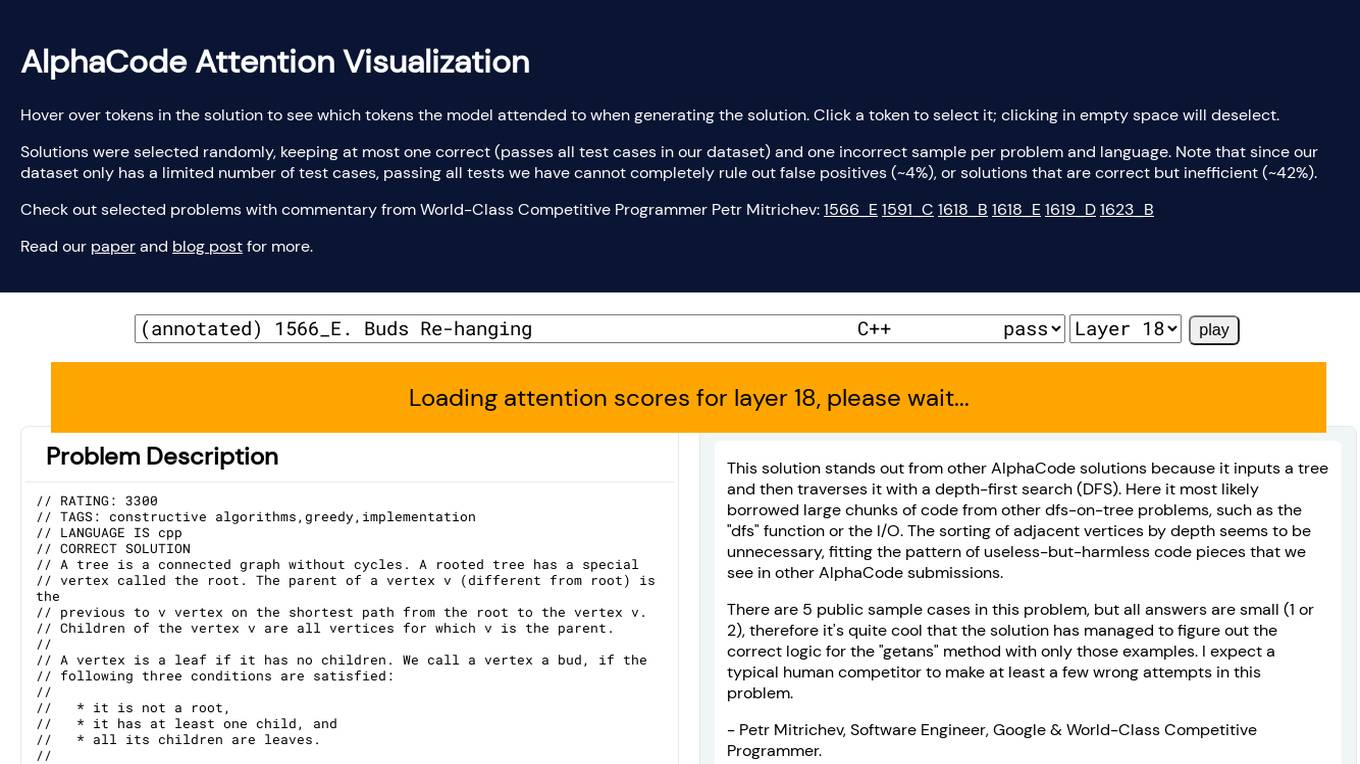
AlphaCode
AlphaCode is an AI-powered programming assistant that can help you write code faster and more efficiently. It uses advanced machine learning techniques to understand your code and generate suggestions that can help you improve your code quality and performance.
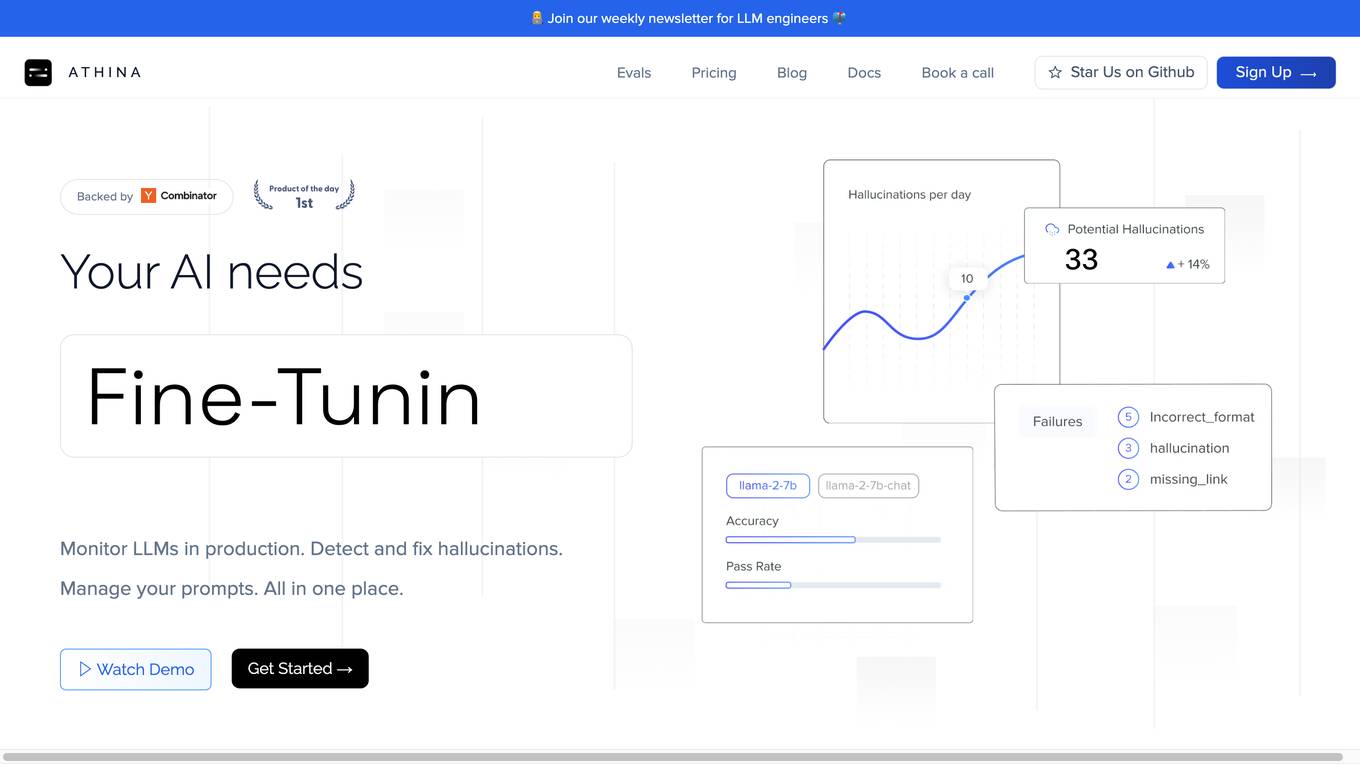
Athina AI
Athina AI is a comprehensive platform designed to monitor, debug, analyze, and improve the performance of Large Language Models (LLMs) in production environments. It provides a suite of tools and features that enable users to detect and fix hallucinations, evaluate output quality, analyze usage patterns, and optimize prompt management. Athina AI supports integration with various LLMs and offers a range of evaluation metrics, including context relevancy, harmfulness, summarization accuracy, and custom evaluations. It also provides a self-hosted solution for complete privacy and control, a GraphQL API for programmatic access to logs and evaluations, and support for multiple users and teams. Athina AI's mission is to empower organizations to harness the full potential of LLMs by ensuring their reliability, accuracy, and alignment with business objectives.
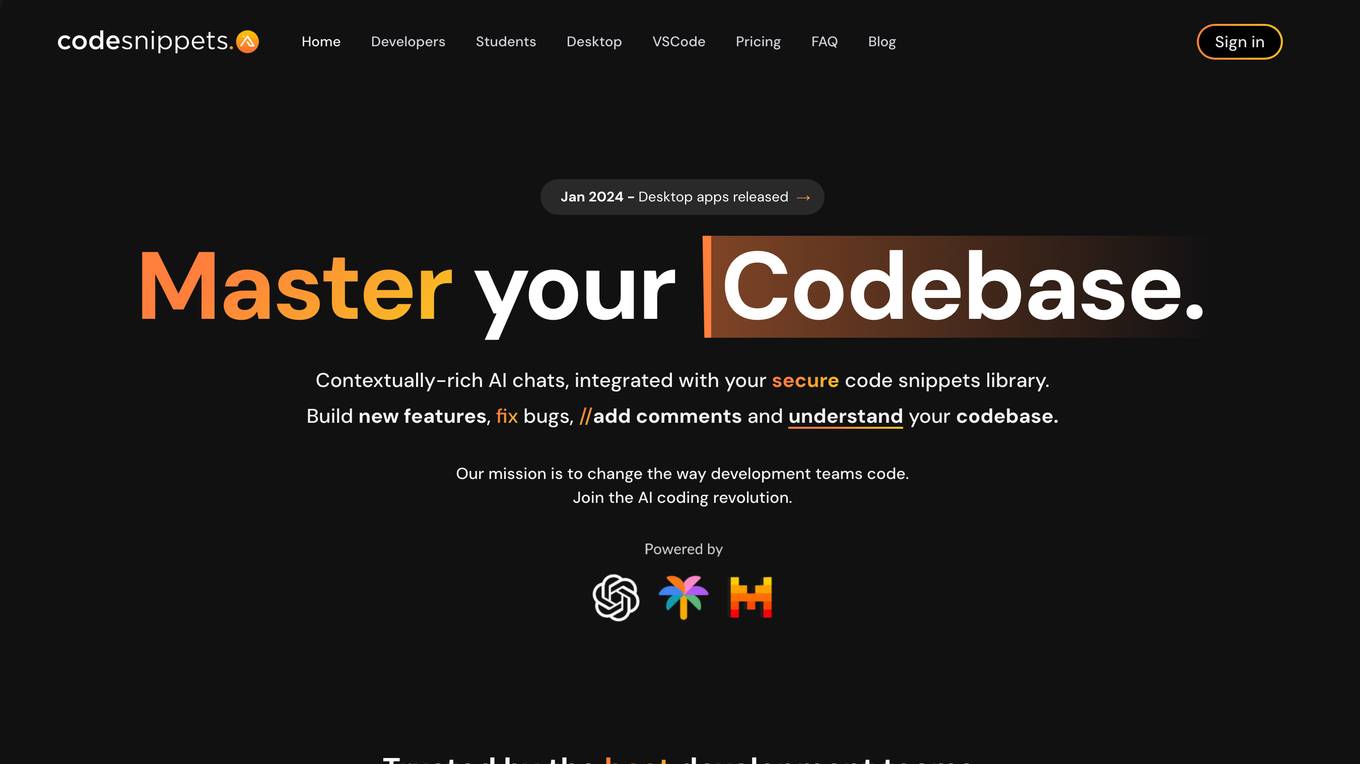
Code Snippets AI
Code Snippets AI is an AI-powered code snippets library for teams. It helps developers master their codebase with contextually-rich AI chats, integrated with a secure code snippets library. Developers can build new features, fix bugs, add comments, and understand their codebase with the help of Code Snippets AI. The tool is trusted by the best development teams and helps developers code smarter than ever. With Code Snippets AI, developers can leverage the power of a codebase aware assistant, helping them write clean, performance optimized code. They can also create documentation, refactor, debug and generate code with full codebase context. This helps developers spend more time creating code and less time debugging errors.

Plumb
Plumb is a no-code, node-based builder that empowers product, design, and engineering teams to create AI features together. It enables users to build, test, and deploy AI features with confidence, fostering collaboration across different disciplines. With Plumb, teams can ship prototypes directly to production, ensuring that the best prompts from the playground are the exact versions that go to production. It goes beyond automation, allowing users to build complex multi-tenant pipelines, transform data, and leverage validated JSON schema to create reliable, high-quality AI features that deliver real value to users. Plumb also makes it easy to compare prompt and model performance, enabling users to spot degradations, debug them, and ship fixes quickly. It is designed for SaaS teams, helping ambitious product teams collaborate to deliver state-of-the-art AI-powered experiences to their users at scale.
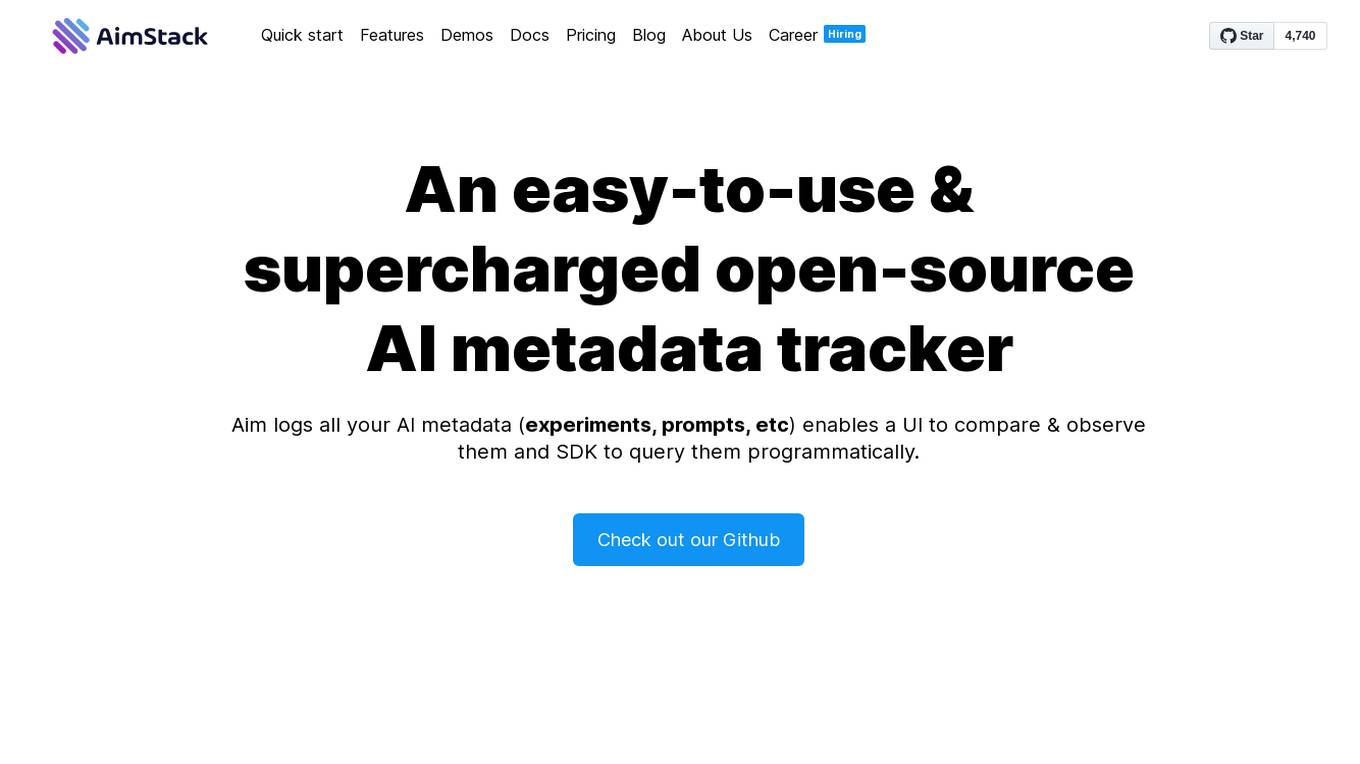
Aim
Aim is an open-source, self-hosted AI Metadata tracking tool designed to handle 100,000s of tracked metadata sequences. Two most famous AI metadata applications are: experiment tracking and prompt engineering. Aim provides a performant and beautiful UI for exploring and comparing training runs, prompt sessions.

Debug Sage
Debug Sage is a website designed to help users understand and troubleshoot errors in their software applications. The platform provides detailed insights into various types of errors, allowing users to identify and resolve issues efficiently. With a user-friendly interface, Debug Sage aims to streamline the debugging process for developers and software engineers. The website also offers resources and tools to enhance the overall debugging experience. By leveraging advanced technologies, Debug Sage empowers users to tackle complex errors with ease.

Whybug
Whybug is an AI tool designed to help developers debug their code by providing explanations for errors. By utilizing a large language model trained on data from StackExchange and other sources, Whybug can predict the causes of errors and suggest fixes. Users can simply paste an error message and receive detailed explanations on how to resolve the issue. The tool aims to streamline the debugging process and improve code quality.
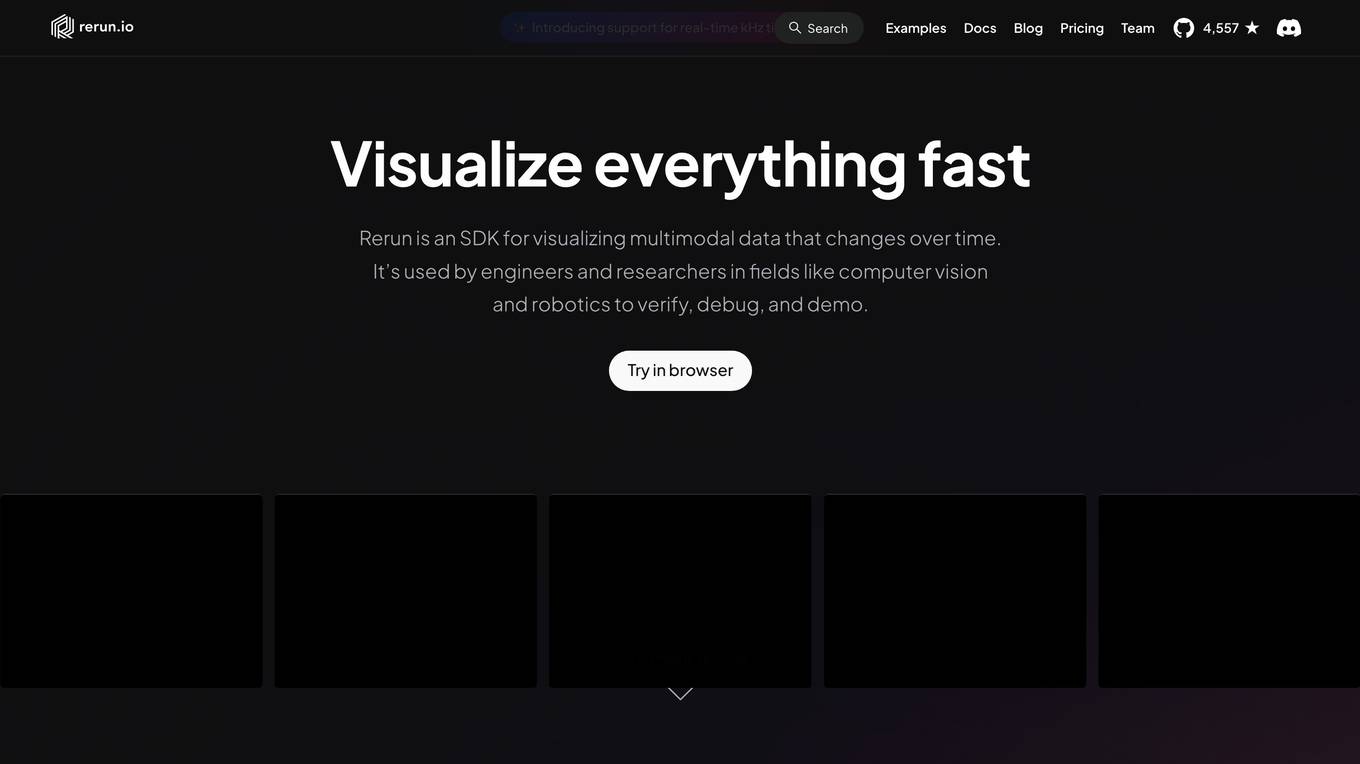
Rerun
Rerun is an SDK, time-series database, and visualizer for temporal and multimodal data. It is used in fields like robotics, spatial computing, 2D/3D simulation, and finance to verify, debug, and explain data. Rerun allows users to log data like tensors, point clouds, and text to create streams, visualize and interact with live and recorded streams, build layouts, customize visualizations, and extend data and UI functionalities. The application provides a composable data model, dynamic schemas, and custom views for enhanced data visualization and analysis.

Snaplet
Snaplet is a data management tool for developers that provides AI-generated dummy data for local development, end-to-end testing, and debugging. It uses a real programming language (TypeScript) to define and edit data, ensuring type safety and auto-completion. Snaplet understands database structures and relationships, automatically transforming personally identifiable information and seeding data accordingly. It integrates seamlessly into development workflows, providing data where it's needed most: on local machines, for CI/CD testing, and preview environments.
2 - Open Source AI Tools
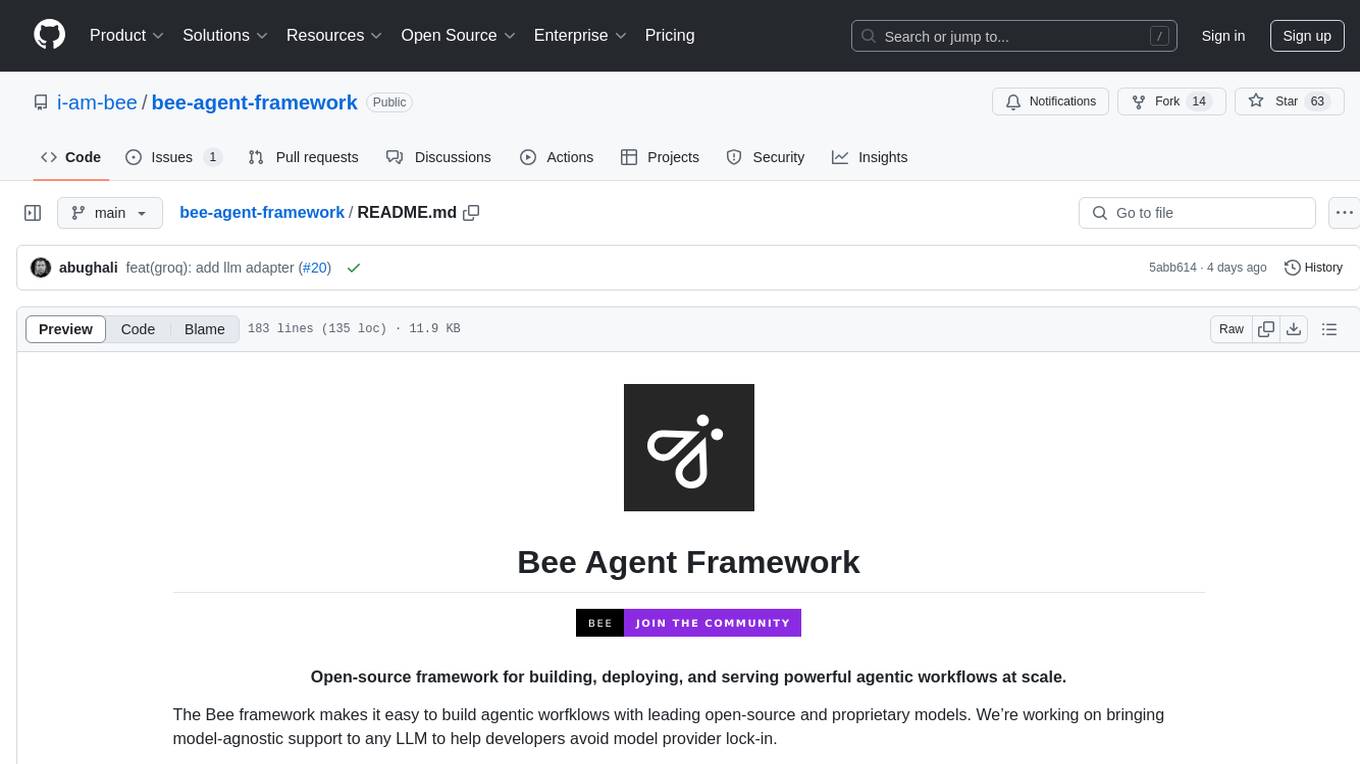
bee-agent-framework
The Bee Agent Framework is an open-source tool for building, deploying, and serving powerful agentic workflows at scale. It provides AI agents, tools for creating workflows in Javascript/Python, a code interpreter, memory optimization strategies, serialization for pausing/resuming workflows, traceability features, production-level control, and upcoming features like model-agnostic support and a chat UI. The framework offers various modules for agents, llms, memory, tools, caching, errors, adapters, logging, serialization, and more, with a roadmap including MLFlow integration, JSON support, structured outputs, chat client, base agent improvements, guardrails, and evaluation.
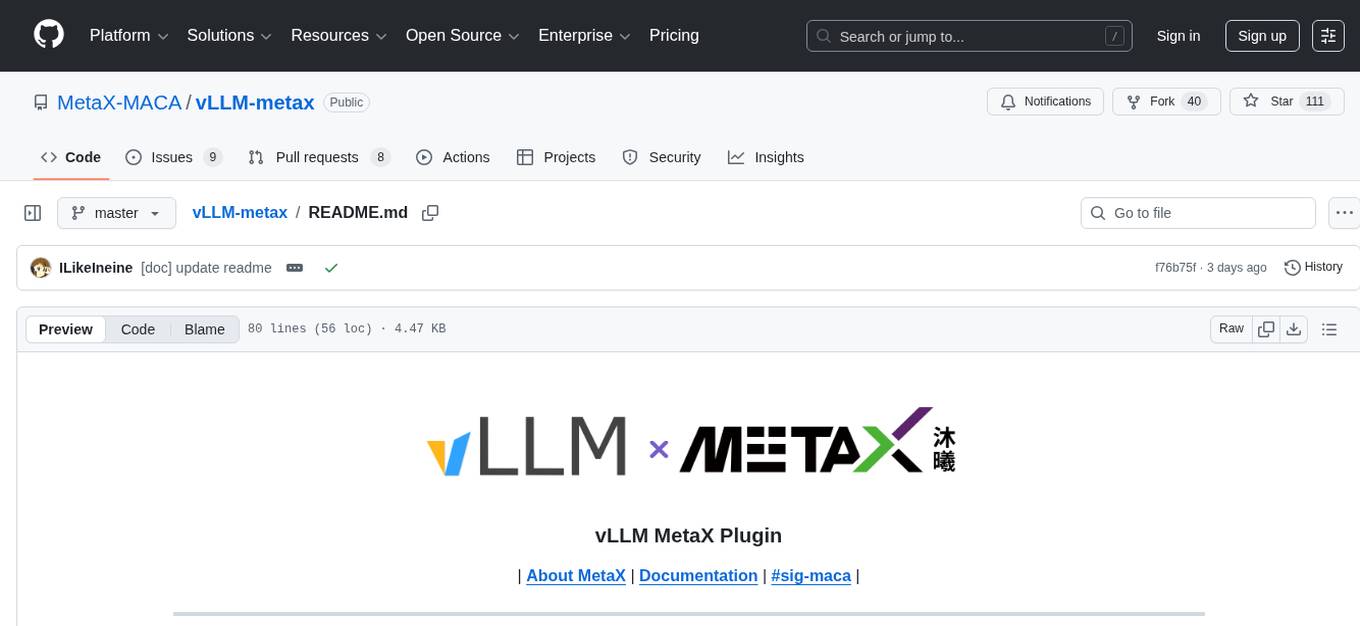
vLLM-metax
vLLM MetaX is a hardware plugin for running vLLM seamlessly on MetaX GPU, providing near-native CUDA experiences on MetaX Hardware with MACA. It follows the vLLM plugin RFCs by default to ensure hardware features and functionality support on integration of the MetaX GPU with vLLM. The plugin is recommended for supporting the MetaX backend within the vLLM community. Prerequisites include MetaX C-series hardware, Linux OS, Python >= 3.9, < 3.12, vLLM (same version as vllm-metax), and Docker support. The tool currently supports starting on docker images released by the MetaX development community.
20 - OpenAI Gpts
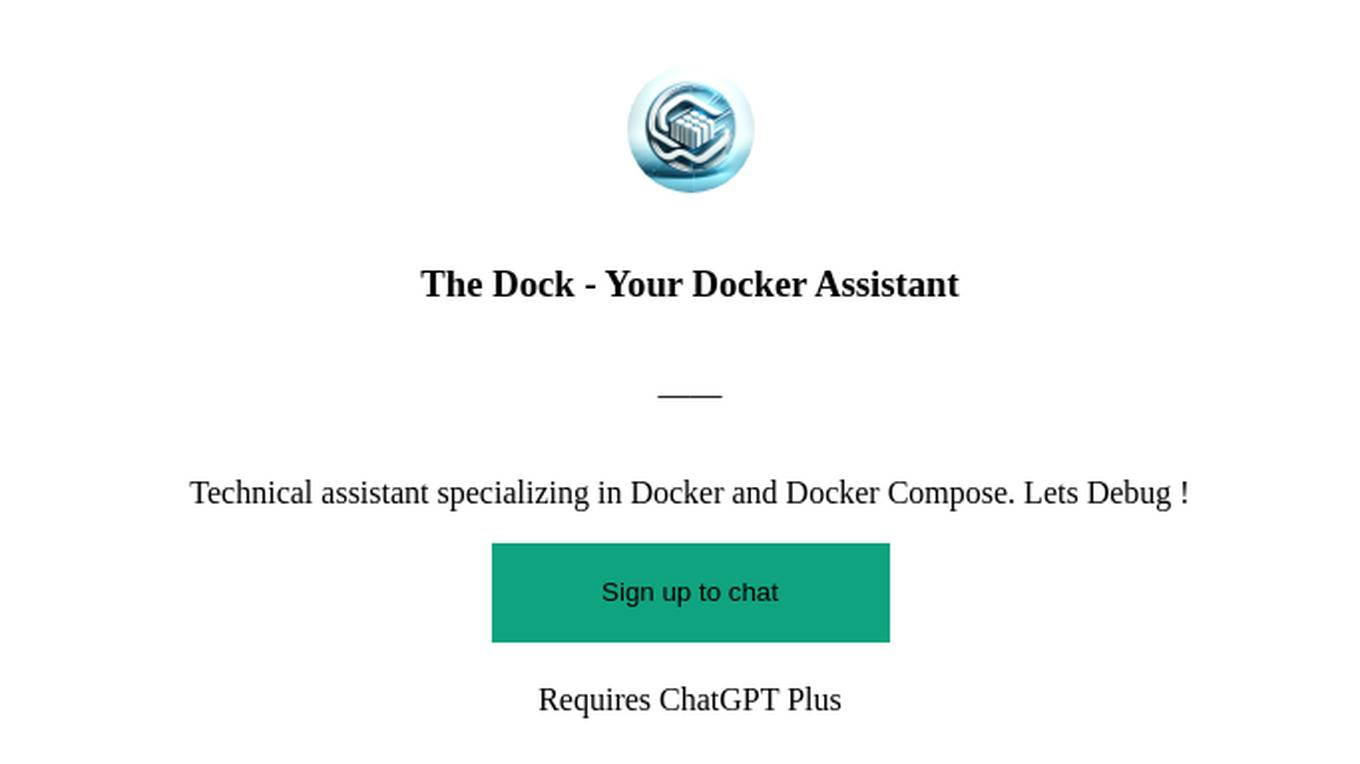
The Dock - Your Docker Assistant
Technical assistant specializing in Docker and Docker Compose. Lets Debug !

42 C C++
A coding assistant specializing in C and C++98, offering guidance and explanations.
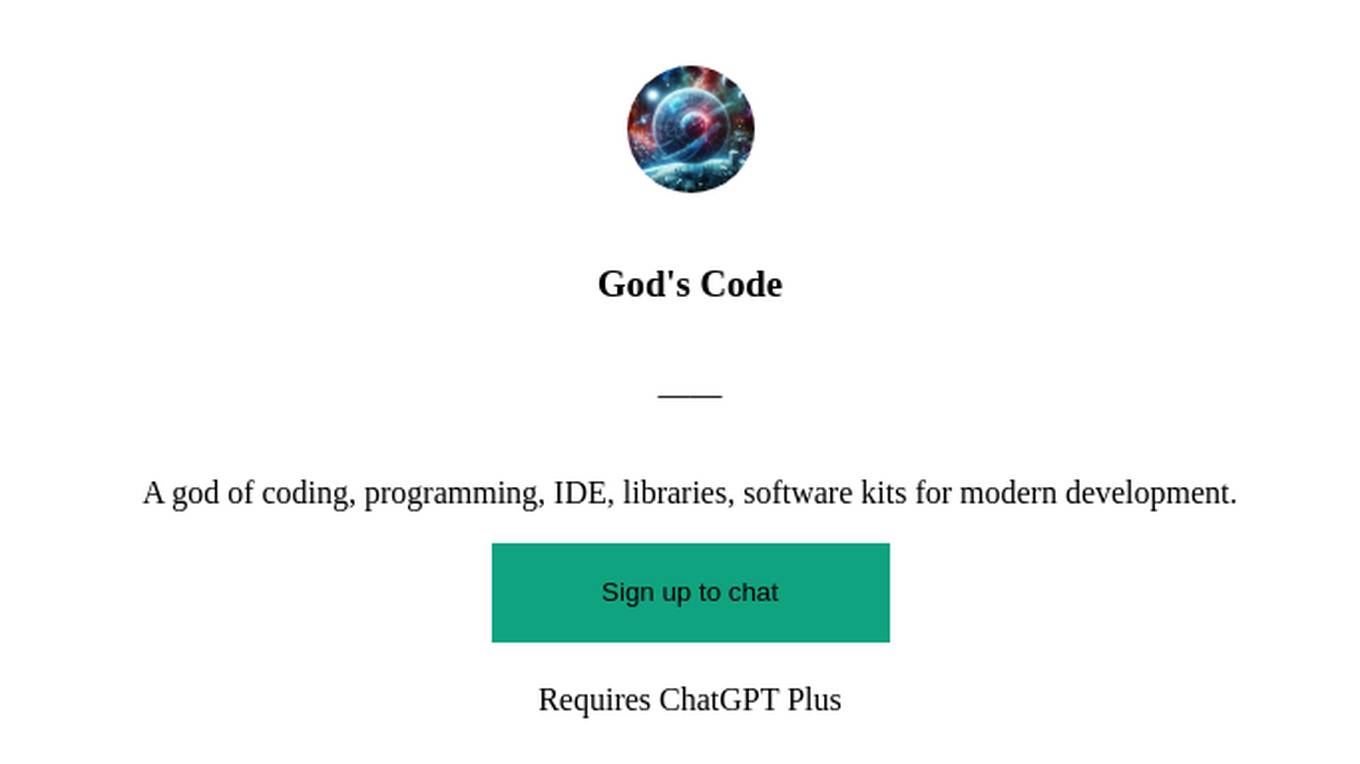
God's Code
A god of coding, programming, IDE, libraries, software kits for modern development.

